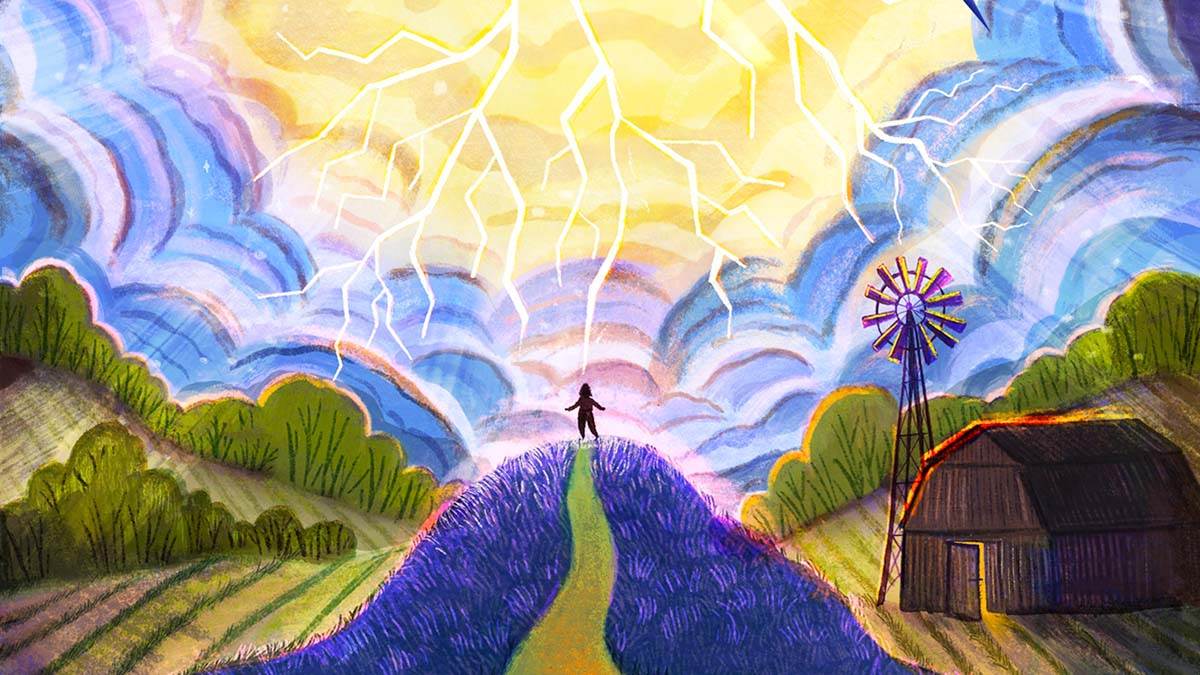How to bake a book, by My Own Lightning author Lauren Wolk
Published on: 04 September 2023 Author: Lauren Wolk
My Own Lightning author Lauren Wolk reveals the recipe for writing a great story...

Pic: Katie Hickey
For me, writing is like cooking. My recipe has only a few essential ingredients, all of which are important on their own but most delicious when stirred together and baked as one.
I start with the truth as I know it.
Everything that has influenced who I am, what I believe, how I live. That's my truth. And it's always connected in some way to setting. A place I know well. A place that's really a character itself.
In My Own Lightning, that setting is a small farm in Pennsylvania where my protagonist, Annabelle, feels loved and understood.
Next, I fold in the fiction.
What I imagine. It's whatever rises in my mind when I slip into the skin of my main character. In My Own Lightning, I imagined Annabelle in the safe haven of her family, her farm, but shaken up by the events of Wolf Hollow. Upset. Changed. And ready for her life to expand, to include new experiences, especially a fresh way to look at the world around her.
So I imagined her being struck by lightning in a summer storm... and being changed by the event in ways that help her see hidden layers in herself and others.
Third, I sift in what I learn, the research I do to make sure that I get things right.
Of course, a work of fiction can be whatever I want it to be. But historical fiction is stronger and truer if its details are accurate and authentic.
Fortunately, as I wrote both Wolf Hollow and My Own Lightning, I could rely on my experiences on my family's farm and harvest details from my mother's stories about her childhood there. But I had never been struck by lightning, so I did research to make sure that what I imagined was at least possible. True in some sense of the word.
Last, I thoroughly blend everything into the writing itself.
I strive to put the right words in the right order, but I never follow a map. Instead, I follow my protagonist. Since I write in the first person, it's easy for me to feel a strong connection with Annabelle. To trust her instincts. And to share her brain, her heart, her voice, her senses.
If I rely on what she smells, tastes, hears, feels, and sees – and if I let myself become immersed in her emotions – I can write in universal languages that all readers understand. I also try to come up with unusual language filled with images – especially metaphors – that show instead of telling so my readers can add their own truths, use their own imaginations, put themselves into the picture, and become part of the story.
Writing with these ingredients allows me to read my book as I write it: crying when it's sad, laughing when it's funny, cringing when it's suspenseful, and always curious, always eager for the next sentence.
I feel like a chef who tastes a dish at each step of the way to make sure that it's seasoned properly, that the proportions and textures are correct, that I like how it's turning out.
Otherwise, how can I expect my readers to be hungry for what I serve them? Or to be inspired to make recipes – and tell stories – of their own?
Topics: Bookbuzz
